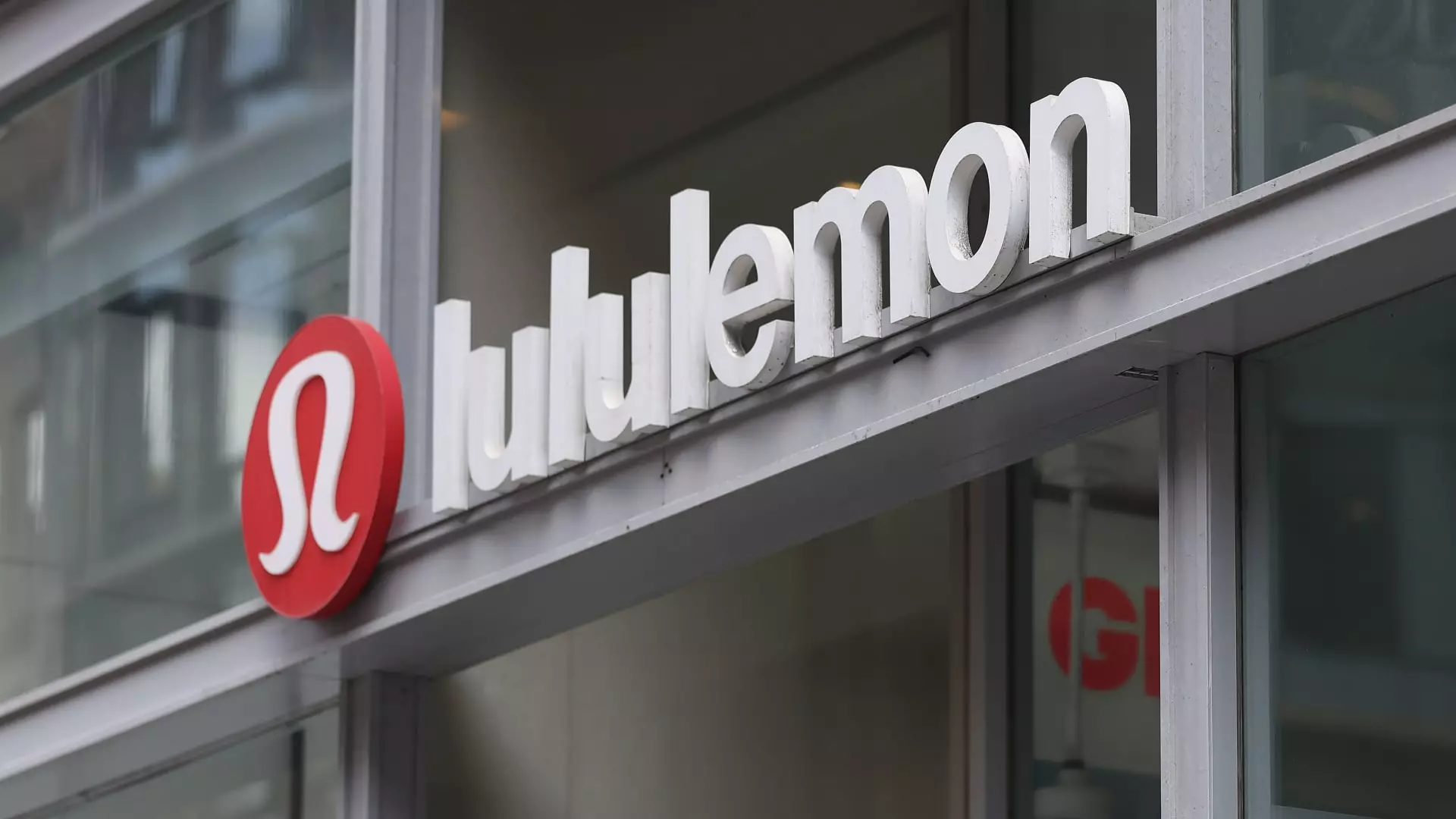In an increasingly interconnected global economy, the unilateral approach adopted by former President Donald Trump towards trade has set off a wave of turmoil among U.S. businesses. As tariffs take the stage, the stock market has proven to be anything but stable. This volatility has hit a wide range of companies especially hard, sparking concerns about long-term repercussions. Various sectors are confronting the brunt of this rapid shift in fiscal policy, and in turn, shareholders are left grappling with the sobering reality of diminished portfolios.
Among the hardest hit is Lululemon, the athleisure emblem of a fitness-conscious consumer base. After the imposition of hefty tariffs—46% specifically on imports from Vietnam, which accounts for a staggering 40% of Lululemon’s products—that share price plummeted by over 11%. This poses a significant challenge for a brand that has emerged as a leader in a competitive marketplace. The realities of rising costs could hinder their once-unyielding growth and might prompt a painful decision: to pass the costs onto consumers in an already cushy market.
Deteriorating Footwear Markets: A Direct Hit
The footwear industry is no sanctuary either, as demonstrated by Deckers Outdoor. The maker of iconic Ugg boots suffered a sharp drop exceeding 14% in share value. With 68 suppliers rooted in Vietnam and an additional 125 in China, the logistical web that once seemed optimal now looks perilously fragile under the pressure of punitive trade measures. The repercussions reach beyond Deckers, affecting a multitude of brands that rely on similar supply chains. This makes one question whether these companies should diversify their sourcing strategies to mitigate risks that don’t seem like a passing storm, but rather a persistent downpour.
Perhaps even more astonishing is Nike, one of the most recognizable brands globally, which experienced a decline of 12.1%. Their heavy reliance on manufacturing facilities in China and Vietnam leaves them vulnerable to mass tariffs aimed at “counteracting unfair trade practices.” As athletic gear becomes more expensive, consumer sentiment could sour, particularly among price-sensitive shoppers. In a world where exclusive collaborations reign supreme, could Nike find itself treading water while other nimble competitors innovate?
The Discount Retailers Aren’t Getting Off Easy
Discount retailers like Five Below and Dollar Tree also fell victim to this onslaught, with shares dropping by more than 27% and 9%, respectively. The reality for these companies is blaring: the higher tariffs lead to increased costs, ultimately translating into price hikes for consumers. Dollar Tree CEO Michael Creedon has been clear, announcing the likelihood of price increases to offset losses. But in an economy where consumers are already stretched thin, price sensitivity could dictate a swiftly changing landscape. If these retailers fail to adapt, joy at the checkout might be a distant memory.
In a curious twist, good ol’ American companies such as Ford are scrambling to maintain consumer trust. With Trump’s 25% tariffs on imported vehicles now a reality, Ford’s recent offer of employee pricing to everyday customers appears more like a desperate bid to shore up sales than a genuine promotional effort. The capitulation to rising import costs signifies a worrying precedent that may eventually turn consumers away, as many might not be willing to fork out more cash for reliable vehicles during an era of rising living costs.
Big Tech Faces the Music
Historically, tech giants are seen as resilient players in the stock market, yet they are not immune to the cascading effects of Trump’s trade policy. Financial titans like Goldman Sachs and Morgan Stanley saw shares slide nearly 8%, while companies like Amazon and Apple dropped by more than 7% and 8%, respectively. This unexpected downturn among big-time technology firms prompts a critical examination of whether they are truly insulated against trade-related pressures, given their substantial reliance on overseas supply chains.
Even the semiconductor sector has not escaped unscathed. Despite assurances from the White House that semiconductors would not be taxed, stocks from major players like Nvidia and AMD plummeted by 6% and 8% respectively. The dual message from policymakers and the market results creates uncertainty, leading to investor jitters that could have lasting effects on innovation and technological advancements.
Shocking Earnings Calls: A New Era of Reality
Companies navigating through the fallout have begun to unveil their quarterly financial results, revealing a troubling picture. RH, a luxury home furnishing brand, saw shares dive nearly 43.5% following lackluster earnings reports, highlighting how even seemingly stable markets can shift dramatically. Coupled with the news of Wayfair’s 25% dip, the reality of a weakened market is unmistakable. A call from CEO Niraj Shah about the growing importance of these foreign manufacturing countries underscores the shift in operational landscapes—these cannot just be evaluated through quarterly results.
Investors must recalibrate their expectations in response to a mounting wall of uncertainty that has crept into investor sentiment. As the tables turn and the efficacy of tariff policies continue to be debated, it becomes clear that navigating this unpredictable terrain will be critical for sustaining growth and investor confidence. Industry leaders find themselves at a crossroads—adapting to mounting external pressures is no longer a luxury but a necessity in an economy increasingly riddled with volatility.

